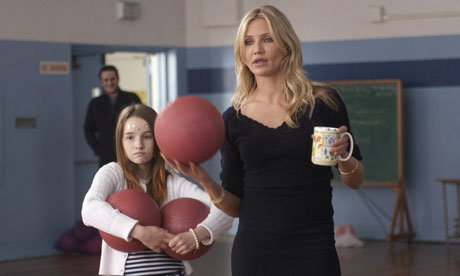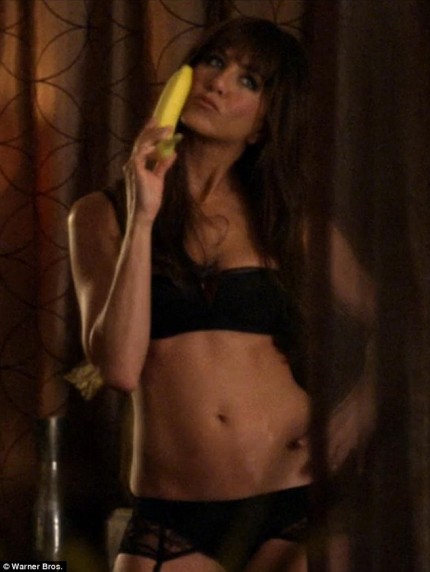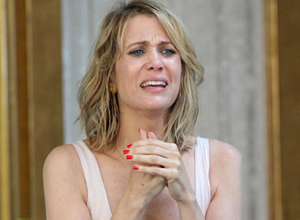Funnygirls have been naughty this summer.

A recent L.A. Times article posed the question, are women in movies getting the giggles by “behaving badly,” and is that “societal progress or a low point?” From Kristen Wiig’s hapless bridesmaid, to Cameron Diaz’s very bad teacher, to Jennifer Aniston’s nymphomaniac horrible boss, funnygirls have gotten the chance to shatter America’s Sweetheart type images, and get down and dirty like the boys do at the movies this summer.And it’s not a low point, it’s awesome. Why?
Because why should behaving badly be inherently male?

The answer is, it shouldn’t. Behavingly badly is inherently human. And funnygirls have played a lot of perfectly nice girlfriends, BFFs, co-workers, and girls-next-door over the years — and they’ve played them with grace. But these aren’t the characters that get the hilarious, unforgettable scenes. Perfect characters are boring. Flaws are funny.

That said, it’s been noted that comedy superproducer Judd Apatow suggested the inclusion of the aforementioned wedding dress scene in Bridesmaids, to give Wiig’s character a moment to “royally screw up” her friendship with Maya Rudolph’s character, while Wiig and her co-writer Annie Mumolo were focused on things like “the real exchanges between women and the real emotions that come into play in friendships.”
The resulting film was “very much a melding of soft and hard comedy,” Mumolo has said, which speaks to the fact that the balance between traditionally “male” and “female” sensibilities — and in this case, the balance between humiliating moments and genuine emotions — may just be why the film has grossed over $200 million worldwide.
Besides, female humor comes in all shapes and sizes and smells and tastes, so the assertion that funnygirls are getting cruder to get the laughs based on three movies that came out this summer is a somewhat perfunctory analysis.
Case in point: bawdy commitment-phobe Whitney Cummings and “adorkable” new girl Zooey Deschanel are both starring in TV comedies launching this fall. In Comediva terms, that means for every Shirley, there’s a Lucille — a funnygirl cooking up her own flavor of comedy sans potty humor, perhaps with a dash of slapstick for texture.
Humor is subjective, so while there are qualities that typically define male humor versus female humor, blanket statements about gender are unequivocally lame.
Wait, that was a blanket statement, wasn’t it?
